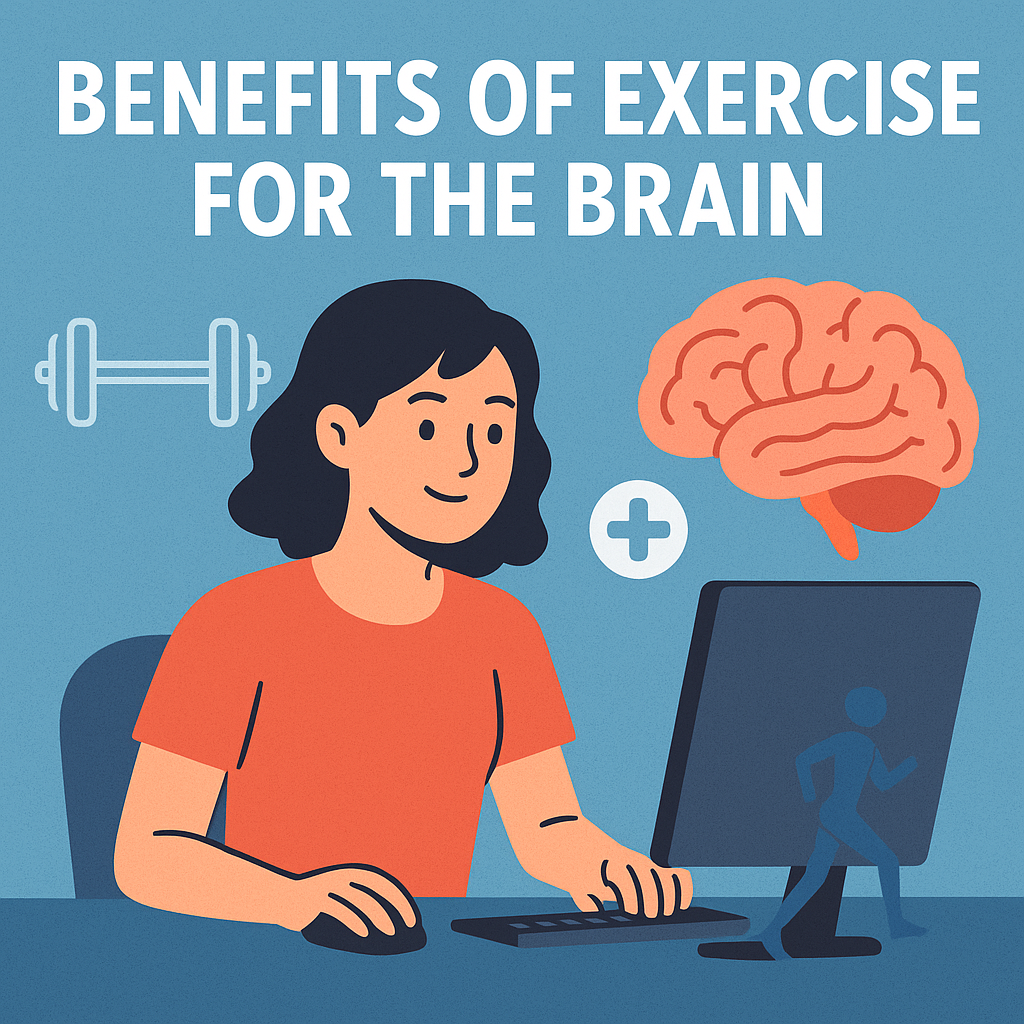In today’s world, most professions are connected with constant computer use. Prolonged sitting in front of a monitor causes not only physical fatigue but also mental exhaustion. To maintain high productivity, clear thinking, and overall well-being, it is crucial to include physical activity in daily life. Regular exercise has a positive effect on cognitive functions and helps the brain stay efficient even during extended intellectual work.
Why is movement so important for the brain?
Physical activity triggers complex biochemical processes that improve blood circulation and oxygen supply to tissues. When a person moves, blood flow to the head increases, along with the delivery of glucose — the main “fuel” for nerve cells. As a result, neurons become more active, signal transmission accelerates, and therefore — concentration improves, memory sharpens, and new skills are acquired faster.
Exercise also stimulates the release of endorphins — the “hormones of joy.” They not only relieve stress but also boost motivation. Thanks to this, even after a long day at the computer, the brain receives emotional support and restores its resources.
Sports against the negative effects of sedentary work
Long hours of computer work are inevitably linked to a sedentary lifestyle. A person may sit for hours without changing posture, which leads to impaired circulation, neck and back tension, and reduced brain activity. In such conditions, exercise for the brain through physical activity are especially valuable.
Even 15–20 minutes of cardio exercise can significantly enhance cognitive abilities. A light jog, cycling, or brisk walking activates neuroplasticity — the brain’s ability to adapt and form new neural connections. This means that any intellectual task after physical activity will be solved faster and more effectively.
Which types of exercise benefit mental performance?
It is not necessary to spend hours in the gym. The key factor is regularity. Among the most effective types of activity for improving brain performance are:
- Cardio workouts: running, swimming, aerobics, dancing. These accelerate metabolism and oxygen delivery to the brain.
- Strength training: building muscle helps maintain overall body tone, positively affecting mental resilience.
- Yoga and breathing practices: reduce stress, improve concentration, and strengthen emotional control.
- Short desk exercises: stretches, shoulder rotations, and simple movements. Even these small breaks give the brain “rest” and help it switch tasks.
How to combine sport and computer work?
The biggest challenge is finding time and keeping motivation. To achieve this, it is worth following a few simple rules:
- Take short breaks every 40–50 minutes, doing at least light stretching.
- Plan at least three full workouts per week.
- Use active leisure: outdoor walks, swimming, or active games.
- Treat physical activity not as a duty, but as an investment in your health and intellectual potential.
Regular exercise has a powerful impact on the brain. It improves memory, increases processing speed, strengthens stress resistance, and helps maintain mental clarity even with intensive computer work. It is safe to say that the benefits of exercise for the brain are just as important as proper nutrition or quality sleep.
Caring for the body through physical activity means caring for clear thinking, creativity, and the ability to make the right decisions. That is why people whose work is tied to computers should pay special attention to regular exercise.
